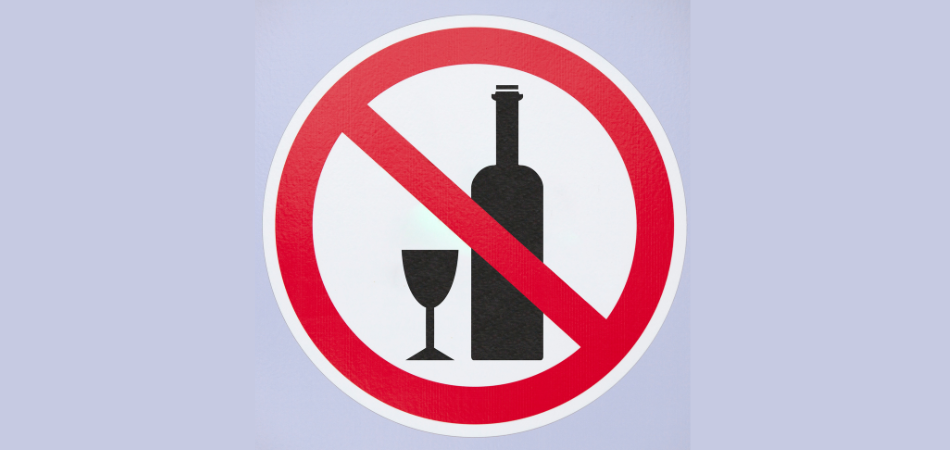Alcohol addiction can cause premature death due to various health effects and risky behaviours associated with excessive alcohol consumption. Research shows that alcohol consumption is a leading risk factor for premature mortality and burden of disease worldwide. Excessive alcohol use is associated with over 200 diseases and health conditions, including mental disorders, liver cirrhosis and certain types of cancer. These health effects can lead to premature death if not treated or managed properly.
In addition, alcohol addiction contributes to unintentional and intentional injuries such as road traffic crashes, violence and suicide. These behaviours, often fuelled by impaired judgment and coordination result in fatal incidents. In the United States alone, excessive alcohol use is reported to be responsible for over 140,000 deaths each year with more than half of the years of potential life lost resulting from incidents like car accidents, poisonings and suicides
Alcohol-related Deaths
Here are the main types of fatal illnesses caused by alcohol addiction:
- Liver Disease: Alcohol abuse can lead to liver diseases such as alcoholic hepatitis, liver fibrosis and cirrhosis. These conditions are life-threatening.
- Cardiovascular Disease: Excessive alcohol consumption increases the risk of cardiovascular diseases, including heart attacks, stroke and high blood pressure.
- Cancer: Alcohol misuse is a known risk factor for several types of cancer, including liver cancer, breast cancer, colorectal cancer and mouth cancer.
- Pancreatitis: Chronic alcohol abuse can cause inflammation of the pancreas, which can lead to pancreatitis, a serious and potentially fatal condition.
- Respiratory Diseases: Prolonged alcohol misuse can weaken the immune system, making individuals more susceptible to respiratory infections and conditions like pneumonia and tuberculosis.
- Accidental Injuries: Alcohol impairs judgment and coordination, increasing the risk of accidents, falls and other injuries that can be fatal.
- Mental Health Disorders: Alcohol addiction often co-occurs with mental health conditions such as depression, anxiety and suicidal tendencies, which can lead to fatal outcomes.
It seems that alcohol addiction mainly causes premature death through the detrimental health effects it has on the body and the hazardous behaviours associated with excessive drinking. It is important for people struggling with alcohol addiction to seek help and for society to implement strategies to prevent and treat alcohol-use disorders.
How to Stop Drinking
So, how do people stop drinking and stay stopped? Well, despite being one of the hardest challenges someone can face, it is achievable with the right strategies and resources. Firstly, acknowledging there is a problem and recognising the impact of alcohol on your life and the need for change. It’s wise to set clear and realistic goals. Decide what your goals are, whether it is to quit drinking altogether or to cut back and set a timeline for achieving them.
Seeking professional help is a good idea as alcohol withdrawals can be dangerous. Talk to a therapist or counsellor specialising in addiction treatment or obtain medical advice. It’s best to find a treatment centre or medical professional that can undertake a medical alcohol detox. Normally, this happens in a clinic but you can also get a medical home alcohol detox, if commitments mean you can’t go to a clinic. The very nature of addiction often means it’s an isolating illness and people require outside help.
Lifelong Support
Get some moral and psychological support by reaching out to family, friends or support groups like Alcoholics Anonymous for help and support. Developing healthy habits is a good idea. By engaging in activities that promote physical and mental well-being, such as exercise, meditation or hobbies, this replaces the time people would drink but also improves mental and physical health. Stay away from people, places and situations that may encourage you to drink or spark cravings by identifying and avoiding bad influences.
Alcohol recovery is a lifelong process and staying committed to your goals and seeking ongoing support is paramount for maintaining sobriety.
People can overcome alcohol addiction and maintain a sober lifestyle. Remember that seeking help is a sign of strength, and recovery is achievable with the right tools and support.
Sources:
- Mayo Clinic. “Alcohol use disorder.” https://www.mayoclinic.org/diseases-conditions/alcohol-use-disorder/symptoms-causes/syc-20369243
- National Institute on Alcohol Abuse and Alcoholism. “Alcohol and Cancer.” https://www.cancer.gov/about-cancer/causes-prevention/risk/alcohol/alcohol-fact-sheet
- American Heart Association. “Alcohol and Heart Disease.” https://www.heart.org/en/healthy-living/healthy-eating/eat-smart/nutrition-basics/alcohol-and-heart-health
- SAMHSA National Helpline.
https://www.samhsa.gov/find-help/national-helpline - Help Guide. “Overcoming Alcohol Addiction”
https://www.helpguide.org/articles/addictions/overcoming-alcohol-addiction.htm
